January 15th, 2016
Zaatari: Day 0–1
Ahmad Yousaf, MD
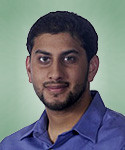
Ahmad Yousaf, MD, is the 2015-16 Ambulatory Chief Resident in Internal Medicine at Rutgers New Jersey Medical School.
“I am going to a Syrian refugee camp.”
The words came out of my mouth without hesitation, and my wife’s reaction is exactly what I expected… She already knew. After 5 years of marriage and 8 years of being stuck with me, she knew how I was going to react when I saw the medical mission video at the fundraiser to which we had been invited. I could not sit in my chair and watch the whole thing. My skin was crawling with guilt about how apathetic I had been until I saw this video. I jumped up and spoke to the presenter as soon as he finished, and I had pretty much signed up by later that evening. I had no idea what it entailed or what I was getting myself into, but it was a decision that has since significantly changed my view of the world.
The next several posts from me will be my daily reflections from my trip to the Zaatari refugee camp for Syrian refugees in Jordan with a nonprofit organization: SAMS (Syrian American Medical Society). I flew to Jordan on New Year’s Eve and returned a short 8 days later, although it felt like much longer. I type now from the comforts of my Rutgers Chief Medical Resident office, but, I assure you, my heart and mind are still with the Syrian refugees. The opinions expressed in this and the coming blog posts are mine alone and do not necessarily represent the opinions of NEJM Journal Watch or the New England Journal of Medicine. I also make the following disclaimer: I am not Syrian, nor do I have roots in Syria. The purpose of my trip was unclear to me at the beginning, but as I return, my goal is much more clear: Let the world know what I saw and experienced. Let my medical and nonmedical family, friends, and colleagues know what it is I saw in the eyes of the Syrian refugees I treated and touched and interacted with. The pictures you see will be credited to those who took them (to the best of my knowledge). The most profound ones you will see are from Amal Rass, a journalism student from Chicago who accompanied the physicians of SAMS and did her best to document the realities of the camp and the refugees. Finally, before I begin… I ask you to share these posts with your family, your doctors, and your colleagues and reflect on the stories and pictures yourself. You may catch a glimpse of what we witnessed while we were there and it may affect you just enough to do something that will truly change things.
Reflections from Day 0-1:
1. (From JFK airport) I’ll be somewhere over the Atlantic when the clock strikes midnight and the year changes from 2015 to 2016. Most of us live an experience where there is some sort of value to one year changing to another. Some progression of something… an assumed movement forward. Refugees don’t have that luxury. When survival and hunger and warmth and escape are the only things on your mind, the only thing that matters is being right here, right now, in this moment… This moment is all we are promised and, for some, ‘next year’ is just a continuation of this moment and not something new to feel hopeful about or to look forward to.
2. We were picked up from the Amman Airport by SAMS personnel, one of them a Syrian refugee himself, but now employed by the nonprofit. We sat in the van and began introducing ourselves and asking about details on what the Zaatari camp was all about. It is now the 5th largest city in Jordan with 75,000-85,000 residents. At its peak 2 years ago, almost 250,000 people lived there. When asked what happened to all of those people, he said, “Some died. Some escaped to Europe. A lot of refugees went back to Syria. In the refugee camps, they were dying slow deaths. In Syria, it was fast death… fast death is better, I think.”
When we arrived in Amman, it was snowing… Warmth is a luxury.
3. The most important medications we dispensed today had nothing to do with the tons of donated meds we had available.
A hand on a shoulder, a smile, a little prayer, and some reassurance were far more effective. I require a translator most of the time to get some of the details… but the prescriptions are almost always nonverbal, unwritten, and intimate.
The most memorable patient we saw today was a young Palestinian boy, around 6 years old. He had to leave the country he was born in for fear of detention. We didn’t have to understand his language to appreciate the animated story he told about why he was here and not in his homeland. And despite the sadness of that premise, he smiled the entire time.
We will come back different people. The things we have seen cannot be unseen. The faces are imprinted in our memories, and theirs smiles are seared in our minds. As I finished up this post, I received a message from one of the residents who came with me on the trip, Dr. Eman Rashed. It was her second day back at work as an intern in Newark, and her message said:
“I wonder how long before I feel like I’m normal again. Seems like never.”
I could not agree more.
Photography by Amal Rass
To donate to the Syrian American Medical Society, click this link http://bit.ly/1pmh8ZR and scroll down to Jordan missions.
If you have questions or are interested in volunteering, please reach out; even if you’re not in the medical field, you’ll be of help, especially if you speak Arabic.



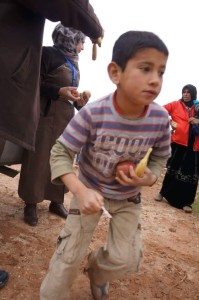
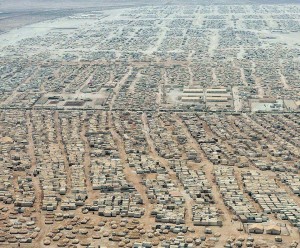
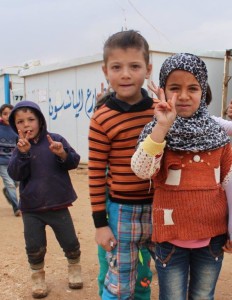
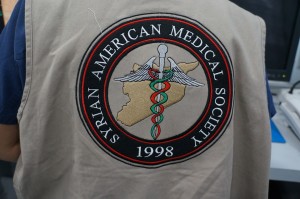

Thank you for serving these amazing, resilient people. You are quite right, humanity knows compassion when experienced. Love is a universal language. You have touched these souls and healed them on a deeper level. God bless you and your SAMS volunteers.
Thanks so much for sharing. I loved your insights.
“A hand on a shoulder, a smile, a little prayer, and some reassurance were far more effective. I require a translator most of the time to get some of the details… but the prescriptions are almost always nonverbal, unwritten, and intimate.”
This is also true in this country and universally.
Thank you for responding to this call on your life and for blogging. Sharing your experiences will provide clearer insight about the plight of Syrian refugees.
Please keep the posts going to enlighten us in the US. Thanks to all SAM representatives for your generosity of time, compassion nd talent, and to your families for their many sacrifices in your absence. May God bless you all!
Thank you for sharing this.
GOOD FOR YOU, thankyou. PLEASE also get a plan to Protect the girls, women in such camps: I just read a story of the epidemic of groping, leering, stalking,and rapes & impregnation of women in the refugee camps, sometimes holding their own babies!!
PLEASE, American women are looking at you to protect their refugee sisters there!
Yes, of course it’s the same at home,here, only not as frequent nor maybe as brutal, savage.
PLEASE!